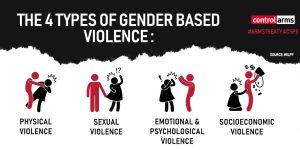Gender-Based Violence in Chad: An Ongoing Crisis
In Chad, gender-based violence (GBV) remains a deeply entrenched issue that affects countless women and girls across the nation. This pervasive problem is often attributed to cultural norms that place the blame for violence squarely on the victims, particularly women. As a consequence, survivors of GBV frequently face stigma and ostracism, making their recovery even more challenging.
A Culture of Blame
The societal attitudes in Chad foster a culture where victims of violence are often blamed for their circumstances. Many believe the notion that “it is always the girl’s fault” if she experiences violence. This harmful stereotype not only silences victims but also perpetuates the cycle of abuse, allowing perpetrators to escape accountability.
The Impact of Gender-Based Violence
Gender-based violence has significant repercussions on the physical and mental health of survivors. Victims often suffer from long-term psychological effects, including depression and anxiety, in addition to physical injuries. The lack of comprehensive support systems further exacerbates these issues, as many survivors struggle to find adequate resources for recovery.
Efforts Toward Recovery and Support
Organizations are working tirelessly to support survivors and combat the stigma associated with gender-based violence in Chad. Programs aimed at raising awareness and providing education are vital in changing societal attitudes. A notable initiative is highlighted in this article on recovery and support for victims of gender-based violence, which can be found here.
The Path Forward
Addressing gender-based violence in Chad requires a multifaceted approach that involves community engagement and legal reform. Empowering women and educating men are critical steps toward changing the damaging narratives surrounding GBV. Only through collective effort can the cycle of violence be disrupted, and a culture of respect and equality established.

